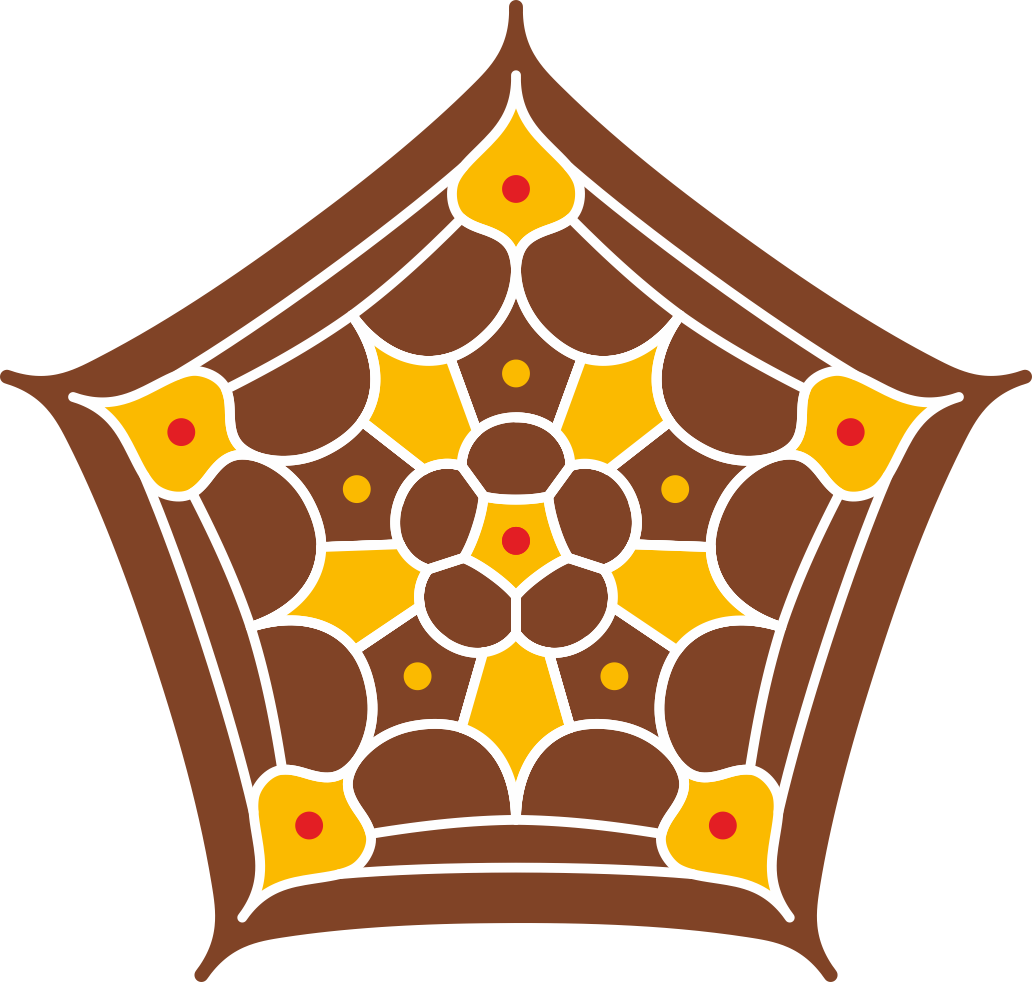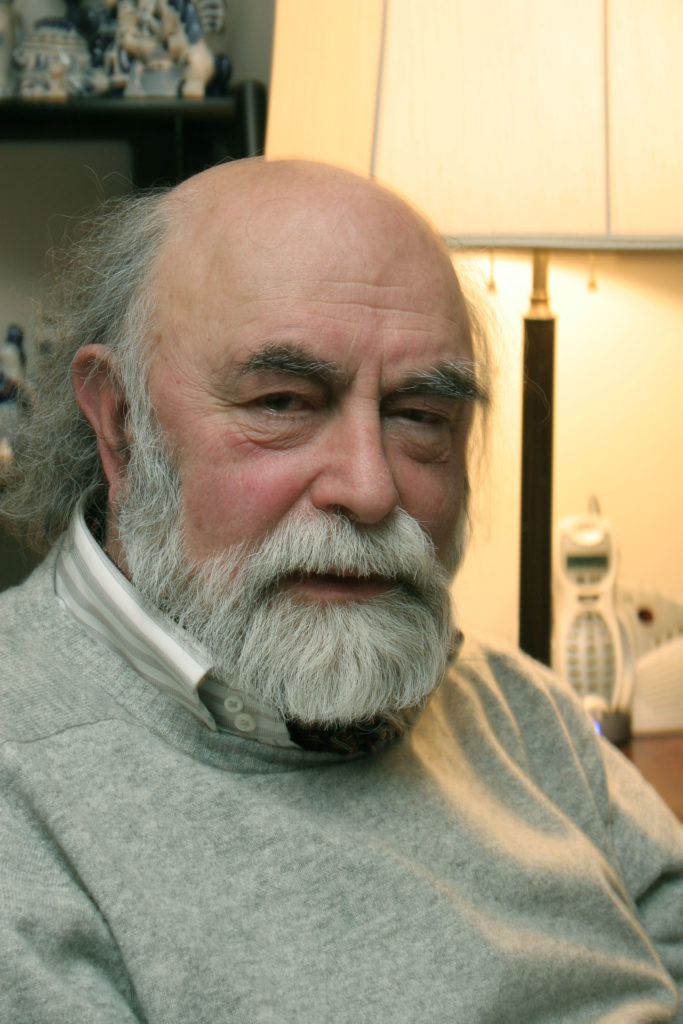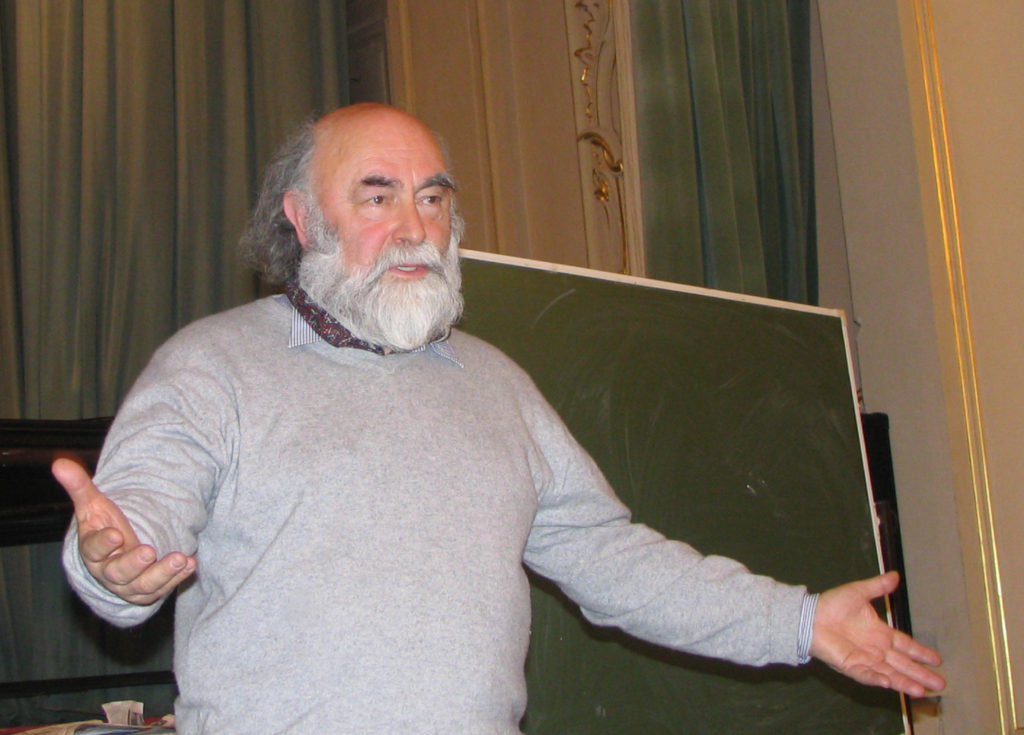
Anatoly Vershik is the Head of the Laboratory of Representation Theory and Dynamical Systems, St. Petersburg Department of the Steklov Institute of Mathematics, and the Chair of Mathematical Analysis, Department of Mathematics and Mechanics, St. Petersburg State University. Vershik spent his childhood years in St. Petersburg, growing up during WWII, traumatized, and even spending time in distant Siberia to escape its horrors. This early brush with war, and an intimate knowledge of oppression faced by his own people during Stalin’s years, left an indelible impression on him, gradually transforming him into a strong voice championing the demand for liberty and freedom. Even as a young and fiercely idealistic student in the 1950s, mathematics provided the ideal escape route, not only for the innate aesthetic approach it offered to the pursuit of immutable truths but also for its own relative isolation, and the consequent immunity, from the machinations of Soviet era polity. For the past six decades, Vershik is renowned for his ability to work in areas that superficially appear mutually unconnected and disjoint, only to unravel subtly hidden pathways, and recondite connections. Vigorous and alert as ever at 86, Vershik is among the few living legends, who via their works and their lives, offer an invaluable bridge between the heady days of the Andrei Kolmogorov–Israel Gelfand–Vladimir Rokhlin era of Russian mathematics, and its more recent avatar, represented by the likes of Grigori Olshanski, Sergei Kerov, Alexei Borodin and Andrei Okounkov.
Dear Professor Vershik: We invite you to this conversation, and on behalf of our team extend you a warm welcome.
AV:Thank you for the invitation. But I must admit that I feel more than a little shy being in this situation, because it’s not easy for me to be doing this. I have had very few interviews of this type before, and I am not really sure that my life and work merits speaking publicly about. Nevertheless, I will try to share with you some things which I consider important.
We know Anatoly Vershik as a prolific Russian mathematician who has contributed immensely to several areas of mathematics. We would like to know a little bit more about your personal life. Could you please tell us a bit about yourself—especially, your family and your childhood.
AV: Well, I was born on the 28th of December 1933, in Leningrad, to very young parents. My mother was a great specialist on the history of India, and this is what I would very much like to emphasise here upon. This is my second visit to India. My mother used to tell me, when I was still a child, many things about your country. She was very highly devoted to her subject, to the history of India, to its many languages, to its great literary heritage, and so on. And she did all of this with a very scientific approach. You may wonder how, and why? The why, of course, is a very nice question, but it is also simultaneously very difficult to explain and address. In fact, you can pose this question to anybody—“Why are you a mathematician? Why do you like biology?’’ and so on.
I would like to stress upon this point, because not only am I grateful to my mother for other things, but also because she, more than anyone else, gave me the very first lesson on what it meant to be a scientist, and also what it was to devote all of one’s time, without an exception, in the pursuit of one’s passion and interests.
When and how did you know that you wanted to be a mathematician?
AV: I decided to be a mathematician from very early on. I remember it was when I was still in elementary school, and barely about 10 years old. I very much then liked to solve problems and so on—and this particular trait is more or less typical for mathematicians. For me, when I look at my life, I also have some other interests too—say politics, and literature. But nevertheless, the main thing has always only been mathematics.
What were the circumstances in Russia during your younger days?
AV: Well! This is a very complicated question, and I can only answer this question while looking at my entire life, and not just my childhood. That is because my generation, in a sense, was comparatively a little more luckier than the one before it. I’ll tell you why. My parents’ generation went through all the disgrace that happened during Stalin’s time. Many friends of my parents were arrested during the 1930s and even much later, and there was also the infamous so-called Leningrad affair, which took place just after the War. So, in a concrete sense, their generation was oppressed by power, and they definitely didn’t ever feel that they were completely free citizens in their own country. Nevertheless, they still liked the idea of a powerful Soviet state and so on, though they had to pay a rather heavy price vis-à-vis the freedom of its own citizenry, and particularly of the individual. My own generation’s early years had a small overlap with the War years.
I was very young when the Second World War started. But fortunately, I was not in Leningrad during the so-called Blockade. You are perhaps aware that Leningrad was fully surrounded by Hitler’s troops. It was a great tragedy, and nearly a million people died because there was no food; and Russian winters can be brutal. My parents were trapped in Leningrad during the Blockade, and yet somehow survived those days. With some help, they managed to pack me off to cold Siberia for this entire period. Siberia was far away, safer, and not greatly affected by the War. I returned to Leningrad only much later, when things became better. My own youth was also spent in a comparatively slightly more liberal time. I also then fortunately secured admission to a university, and my career started off. So, I think that in this sense, our generation was much more happier than the previous one.
My parents’ generation went through all the disgrace that happened during Stalin’s time
But, I want to still say that in the middle of the ‘50s, when I had just finished university, for the very first time in my life, I saw firsthand and truly understood the magnitude of the tragedy surrounding the families of people whose lives were lost during Stalin’s years; all that tragedy because of his vain propaganda. Consequently, many of us didn’t agree with all the contentious things which existed back then; and moreover, even to this day, we still don’t agree with the point of view that exists even now in present-day Russia, on the current interpretation of the miserable events that happened in Russia during that entire era. We simply hate this period of time in our nation’s history. We feel that Russia was a miserable country during those years, because the October Revolution, in a real sense, interrupted and slashed our connection with the West for many, many decades starting from 1917; and it is only now that we have some chance to correct all the historical mistakes of the past century.
[Hears the sounds of rain falling outside the room] Is that rain? Oh! [Laughs]. You know, I ask many people if it really does rain in India. People say “No. There is no rain in India.” By the way, rain is so typical for St. Petersburg. Thank you very much, for I now feel very much at home, thanks to the rain! [Laughs]
So, in essence, I don’t agree at all with the point of view held by many people even now that Stalin’s time was good; and also that communism itself was good for Russia. I completely disagree.
Please tell us about your higher education. How did your mathematics education mould you?
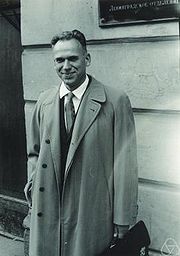
AV: I was very happy with my teachers. Let me tell you a few words about them. The tradition of Russian science when I was an undergrad student, and later even when I was a graduate student in Leningrad, was very good. I can mention some of my teachers. For example, we had Leonid Kantorovich, a well-known mathematician and economist, and a Nobel laureate too. Dmitry Faddeev, the algebraist, taught us. Vladimir Rokhlin, my main advisor, was a topologist and a specialist in dynamical systems. We had Grigorii Fichtenholz, the analyst, whose textbook on analysis is well-known; as well as Yuri Linnik, the well-known probabilist. Aleksandr Aleksandrov, one of the great geometers of the 20th century, was one of our teachers too. I keenly listened to their lectures, and I had very good contacts with all of them. Faddeev gave me my very first problem, which I remember involved a function on metrics, while I was in my second year. Later, I had Rokhlin as my advisor after he came to St. Petersburg in the ’60s. He was my main teacher in dynamical systems, topology, and also in functional analysis. Later, I enjoyed a very strong period of contact with the legendary mathematician Israel M. Gelfand. Gelfand then lived in Moscow, and when we first established contact, it was already the beginning of the ’70s. He attracted me to his school, and I had many joint papers, both with him and Mark Graev.
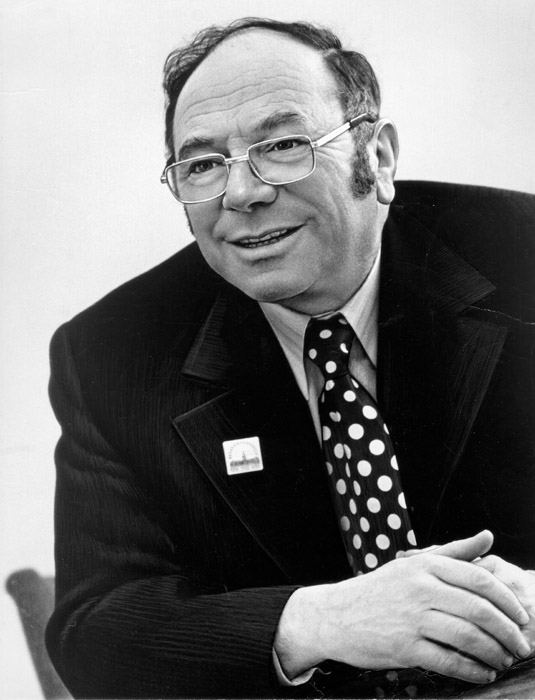
I immediately understood that he was a great scientist. He was not an academician. He did not enjoy any kind of formal support, or approval from the political authorities at the top; but nevertheless, he was a great authority in matters related to mathematics. Many people like Vladimir I. Arnold, Sergei P. Novikov, Dmitri Fuks, and Yakov Sinai were partially his pupils. I was also one of his pupils, and I learnt many and very important things from him. For example, he tried to teach us that mathematics must be in a primal sense “ideological”. It’s important first of all, and above everything else, to obtain the key, and the fundamental idea. Later on, you can calculate, prove and so on. But it is very important to first have a very clean philosophy to start with, even when you are considering a concrete equation.
After release from the Nazi camp, he sadly went straight to another camp
When I was a student, I very much wanted to study the “classics” of mathematics. But, I want to confess to you that I have not read the classics; say papers by David Hilbert, or even those by, say Joseph Lagrange. But I have tried to read some well-known papers of some equally well-known mathematicians of the 20th century, like John von Neumann. When I was a student, I did read many papers by von Neumann, Hermann Weyl, and Andrei Kolmogorov. I remember that I decided to read all the issues of the main mathematical journal of the day then, the legendary Uspekhi Matematicheskikh Nauk—also known as the “Russian Mathematical Surveys”—which itself had first started to appear in the 1930s. I decide to read as much as I can of all the issues of this journal. Around the same time, it was somewhat problematic for me to focus on the humanities. I did like literature a lot, and I could even write a little bit of poetry, and so on. But I decided to focus on mathematics, because I liked mathematics above everything else. Secondly, even though I was relatively young and inexperienced, I quickly understood that miraculously, work that was related to the study of mathematics and physics was the only intellectual activity in Soviet Russia which could provide a person, at least partially, a much yearned-for immunity from the ideological pressures of the Soviet State. This was also then vital for me, even to help me preserve my own sanity.
Throughout modern history, we see that Russian mathematicians have been very influential. They have revolutionised almost all areas of mathematics. How did this become possible? What lessons can math educators in India learn from the great Russian school?
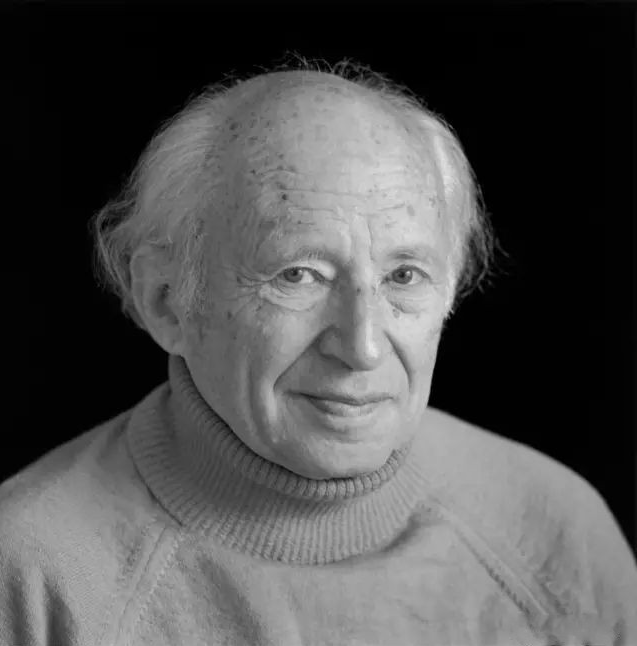
AV: One of the reasons why the quality of Russian mathematics then was consistently very high, though sadly not so much now, is the following. Talented people in countries other than Russia routinely study business- and management-related subjects, or perhaps even go to philosophy or political science depending solely on their individual interests and competence. Sadly, there were no such possibilities available during the Soviet rule, because during that time, as a primary prerequisite, any such aspirant first had to become a member of the Communist Party. Later, he/she had to simply listen to, and plainly accept all the mindless propaganda that the Party preached; and also had to do all of this without the slightest disagreement or questioning. So you had to basically compromise with the power that the State wielded on its own citizens. Luckily many ordinary people didn’t approve of this compromise, and this in a strange and unexpected or unplanned way, turned out to be a very good thing for mathematics. Many such people, independent-minded and unwilling to compromise, went into mathematics and physics, during the ’30s and the ’40s.
Another fact that needs to be taken cognizance of here is that Russian intelligentsia, especially after the October Revolution of 1917, became in a real sense progressively and completely isolated from their Western counterparts. There was very little direct contact between the two. Even in the ’70s, and this was when I was already a practising mathematician, I would routinely receive a lot of invitations to attend many conferences that were then happening abroad. But, of course, I enjoyed no right to travel abroad. Only a few people who had very good political connections could go. But since I had a very bad reputation—reputation meant here in a strictly political sense—I was not allowed. So these things created a situation where you had no contact with others outside the Soviet Union for extended periods of time. Consequently, you had to have everything created right there. This fact, coupled with a progressively ever increasing role that mathematics began to play over time, even in neighbouring disciplines, meant that mathematics itself became more and more welded, integrated, intertwined and strongly connected to many other parts of science, economics, engineering and technology. We essentially had to invent and create all that we needed, right here; and many a times, simply starting from scratch.
He tried to teach us that mathematics must be in a primal sense “ideological”
On another note, first of all, you have to excuse me. I know many Indian mathematicians, but I am not sure whether all these people actually presently work here in India, or have ever worked in the past in India. Maybe they did work for some time in the U.S. For example, say Harish-Chandra. Harish-Chandra’s work is well-known to me because I studied representation theory after establishing contact with Israel Gelfand. I know that Harish-Chandra spent a large part of his professional life mainly in the West. In the Russian context, for example, Grisha Margulis who is a very good friend of mine has very strong contacts with Indian mathematicians; especially in areas connected to Lie algebras and discrete subgroups of the same, via his friendship with M.S. Raghunathan and his school. But the main difference, in my opinion, between the Russian school and the Indian school is the following: Indian mathematics has always been naturally connected with the world, especially with respect to its mathematical and scientific connections with both the U.S. and Europe. In the corresponding period in Russia, this sadly was not true at all. Also, and especially since the last 20 years or so, many young people in Russia want to go out, i.e, to emigrate from Russia to the West. As I understand, the same has always been true in the Indian case as well. But what is important to note here in the Russian case is the following: In the Russian case, unfortunately, this process still does not have a stable and predictable format.
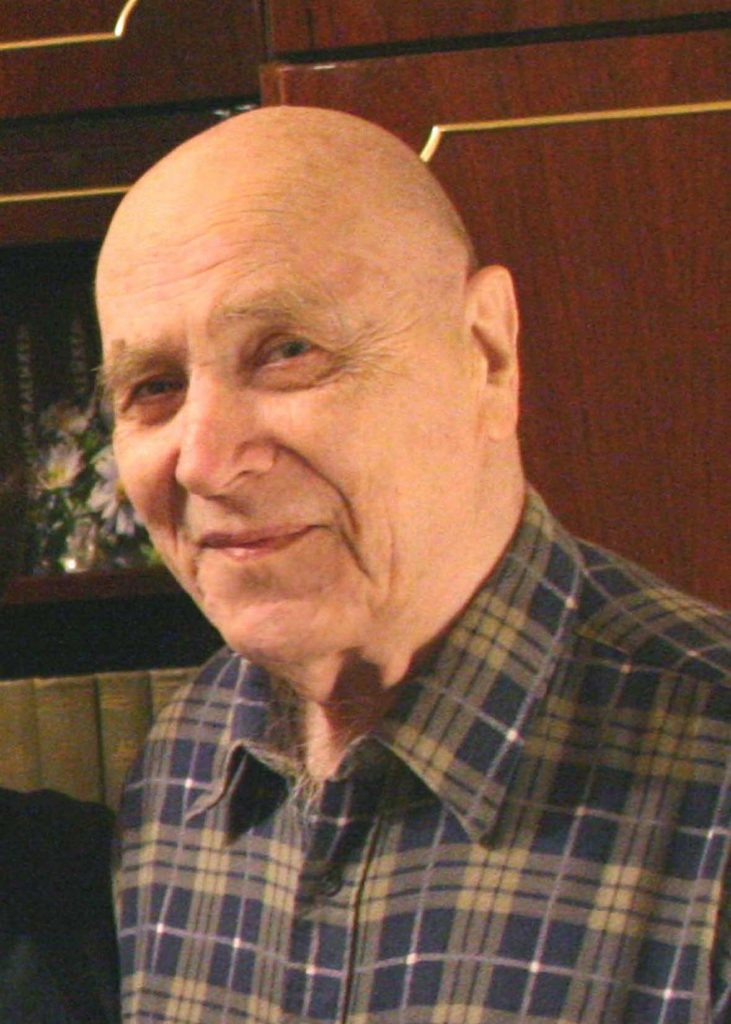
I want to state that, in this world, first of all, there is no such thing as Indian mathematics or Russian mathematics. Every country has a mathematical heritage, and all countries and nations have had some contribution to the global body of mathematical knowledge. So, it’s not useful to divide these things on trivial notions such as nations and cultures. But of course, it’s also fully reasonable to expect that young people everywhere must get a good education in their home countries. Later on though, they must also be fully free to decide whether to go out or not. In the Russian context, this completely reasonable process was deemed illegal and unnatural. First of all, until the ‘70s, it was impossible to emigrate at all. And even if one eventually did, it was only via illegal means. During the next twenty years, it became possible, but only for some kinds of people. For example, Jewish emigration was legal, but officially frowned upon. It was only after Perestroika that things improved. And of course, as expected, immediately a lot of good mathematicians left. This large-scale exodus since the early 1990s has turned out to be a real problem for Russian mathematics. Many research schools, and many seminars almost disappeared overnight, because the really key people running them simply packed up and left. In a country which has a natural way of developing, and where systems and institutions grow organically, the mutually dual process of going out and coming back home is natural. There is traffic in both directions, and there is some kind of dynamic equilibrium between outflow and inflow. People go out, work abroad for several years, and then return. I know this is true for Japan, and now also true in China by the way. But sadly, in Russia, it’s almost very rare to witness this return. People who emigrate, never return. Why? Because there is no overall social and political stability in the country, and that is very bad. I don’t know a great deal about the Indian story. But, I think in India you still manage to have a reasonable balance between the two directions. People in charge of math education, pedagogy, and policy-making must be acutely aware of these non-mathematical/societal factors; and especially be aware of the fact that such things can end up strongly and adversely influencing the state of affairs in academics. This is something for policy mandarins, educators, and administrators to ponder about, and remain cognizant of.
Nowadays, mathematics has evolved to become a very vast subject, and working even in a single area of expertise is itself highly challenging. Yet, when I look at your body of work over the last sixty years, what I find is a broad swathe consisting of entire families of areas of research. How do you manage to work in all these several areas, many of them mutually disjoint?
AV: In my opinion, mathematics is the same as, say art, in the sense that they are both different representations of nature. Also, if you like something, say for example a painting, why is it that you also don’t like some other painting? This is actually a question about your own intrinsic taste. My impression is that even in mathematics, there is a hidden flavour that can be associated to every one of its branches—and each mathematician has his or her own unique sense of taste, which shows up in the kinds of problems that one finds charming and interesting. It’s very difficult to explain this idea any further and in more accurate terms; but it’s important to understand that this feeling of familiarity, kinship and comfort that I have personally felt for some areas of mathematics over the years did not personally happen to me, in a flash. It certainly does not happen too, when one is yet barely twenty. It comes about organically and slowly, and forms gradually. And, step by step, one understands what kinds of problems, in different areas of mathematics, appeal to one’s inner sense of mathematical aesthetics. This is the answer to the first part of your question.
Even in mathematics, there is a hidden flavour that can be associated to every one of its branches
I consider this aesthetic sense very important in mathematics. Of course, when you go to say industry, somebody gives you a problem, and you have to solve the problem. This is another kind of situation one may encounter. Whatever your situation may be, it’s important to listen to your “inner voice”. The second point that I want to make is the following, and this is also something that I feel is equally important. Of course, this claim is not my own, and many people including David Hilbert have claimed that mathematics is both unique; and also, that its connection to other areas only appears to be hidden. I feel more and more strongly, and with every passing day, that this is indeed very true. If you look at my own range of interests, at first glance, and to the untrained eye, they all appear very unconnected, disjoint, and very diverse. Given any broad research topic that I have worked in, I can talk to you about at least three different and key sub-topics—all of which fall under that one broad topic. Not just that. I can also engage you in such a way that I can give three separate talks, each focusing solely on only one such key sub-topic, while also ensuring that in each of these three talks, I will never even once mention the other two sub-topics. This has happened quite often
in my career, and it is a very pleasant moment when you understand the intricate manner in which ideas are connected; and further, also get to appreciate when and how these connections appear, even across disciplines. A veritable mathematical subterranea, if you please! And please note that these connections do not happen by pure chance, but exist because there is indeed a strong intrinsic connection between topics—which themselves by the way, only superficially appear to be disjoint and unconnected. This is both good and also sometimes not-so-good, because there is another school of thought that preaches that you must concentrate on only one big problem, say the Poincaré problem, and try to solve it all your life, and also, that this is all that you will ever need to do. This latter viewpoint is different from my own; because my own impression is that both the breadth and the depth of the connections that exist between different areas of mathematics is really one of the most important things about the body of knowledge that we call mathematics.
It’s important to listen to your “inner voice”
At a sprightly 86, you are still a very prolific mathematician who has worked actively for more than 60 years, with immense contributions to mathematics. You have guided more than thirty PhD students, and also had more than a hundred graduate students engaged in various research topics. What do you personally consider as your greatest achievements?
AV:Well, I want to continue with my claim that as a student, I was hugely lucky with my teachers, and I want to also say that I have been hugely lucky with my students too, at least with most of them. One of them recently told me that there are no two graduate students of mine who have the same research topic, even going to the extent that their individual topics are also not even close to any other’s. All their individual topics are very different.
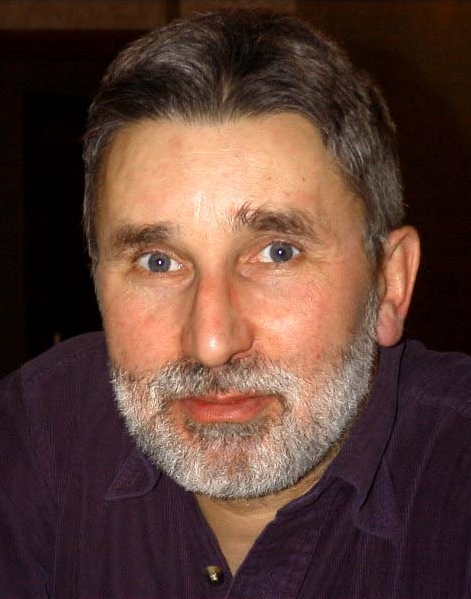
I have many such stories to offer you. One of my main collaborators was Sergei Kerov, who started off initially, again, as my own student. Unfortunately, Kerov died in 2001, and he was still only in his fifties then. We worked together on some of my dearest topics—asymptotic representation theory. So, I can continue to go on like this, but at the same time, the relation between a thesis advisor and his pupil is also not always so simple. While it is a good idea to allow students the freedom and the possibility to work independently, one should also not be afraid to give them a topic that you love, because I believe that even then they can still be successful, and in a true sense, also be grateful to you.
Please share with us some of your singular professional experiences thus far, in what has been a very long and illustrious career.
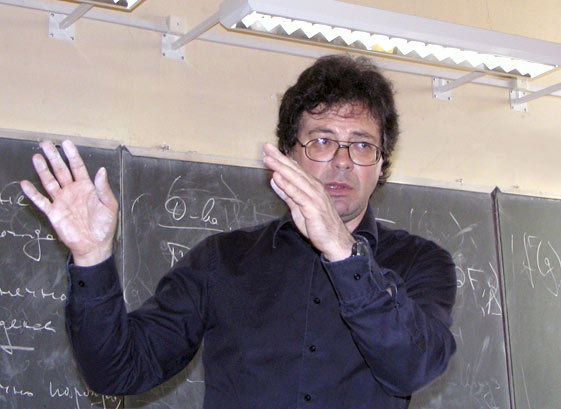
AV: Well… I had a very serious problem in the ’70s, when in the then USSR there was immense political pressure on everybody. I don’t know if it makes sense to talk about the finer details. It was a time when I was very close to some political dissidents, and this fact became known to the KGB [the dreaded Soviet spy agency]. Of course, they didn’t approve of my actions. I was already an Assistant Professor then, but not yet an Associate Professor. They told me that I will not be able to obtain full Professorship, because for that to happen, I first of all had to qualify as someone competent enough to debate and lecture positively about Marxism and Leninism. I simply refused to do this. For a brief period of time after this refusal, they even said, “In that case, you will not even have a graduate student working under you.” And one graduate student who wanted to go with me was called aside and told, “Either you choose another advisor, or you are going out of the University, and further, may even cease to be a graduate student.” Unfortunately, he chose another guide for several years.
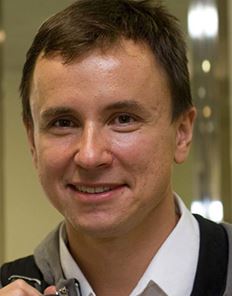
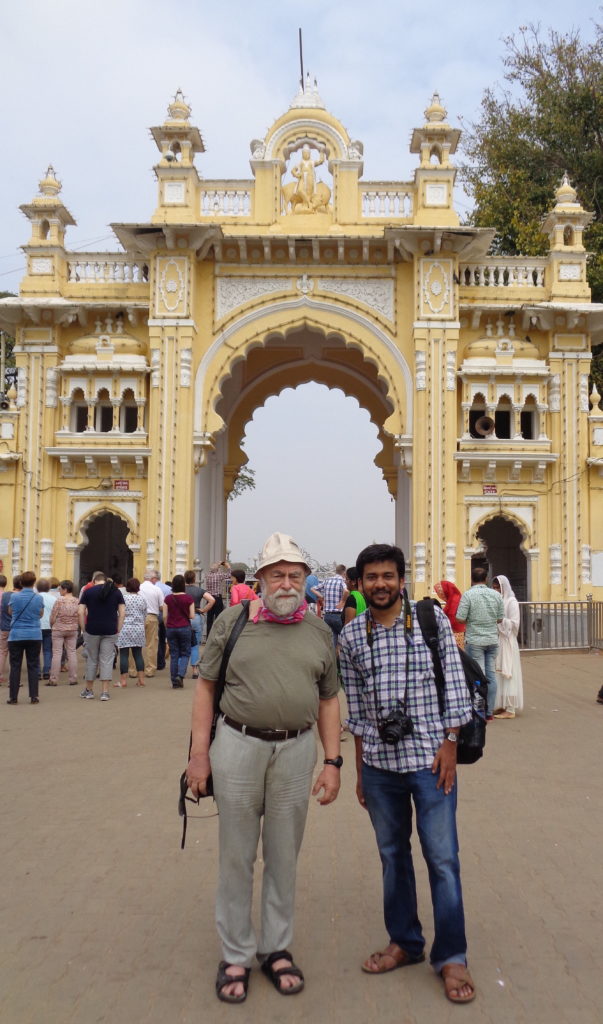
What is important to learn from these experiences is that you should never compromise with your inner sense of values and justice. Wait for your time, and be patient! You will have your moment, and at that moment, you will be proved right.
What does a typical work-day look like, in your life?
AV: Why only a mathematician? You can ask this question to anybody. Well… my best time for thinking, by the way, is indeed both early in the morning, and late in the evening. During the course of the day I can write, I can speak, lecture, and so on. This routine is also very dynamic, and can change sometimes. But, whatever time of the day or night, it’s very important to always remain alert, as interesting things can happen very unexpectedly. Usually, when you have a good idea, unexpected things do happen. Let me talk about something which happened quite recently.
I was quite recently again in Paris, with my wife. I have a lot of friends and colleagues there, and we were living in a place in Paris known as the Latin Quarters. In my head back then—and I have it running in my head even now—I had this problem which was waiting for a solution. I sat down somewhere near the house where I lived, and immediately an idea came to me. This idea involved the so-called Pascal’s triangle, and I was pleasantly surprised that this idea came to me while I actually lived in a place that was situated on a street called the Rue Pascal. This miracle [laughs] about the main idea about Pascal’s triangles coming to me while I actually lived on the Rue Pascal is what I wanted to tell you about always being alert, and that too in a very overall, intuitive, and general sense.
It’s very important to always remain alert, as interesting things can happen very unexpectedly.
Well, this is only meant to be taken lightly, but nevertheless it’s a good example of how hidden things come to the surface if you have already put in an adequate amount of prior work. By remaining prepared and alert, you allow the possibility of a completely different approach to evolve its own course of reasoning, and thus, spring upon you an unexpected surprise. You know, Henri Poincaré also has written about this.
What advice would you want to give young students who want to become professional mathematicians?
